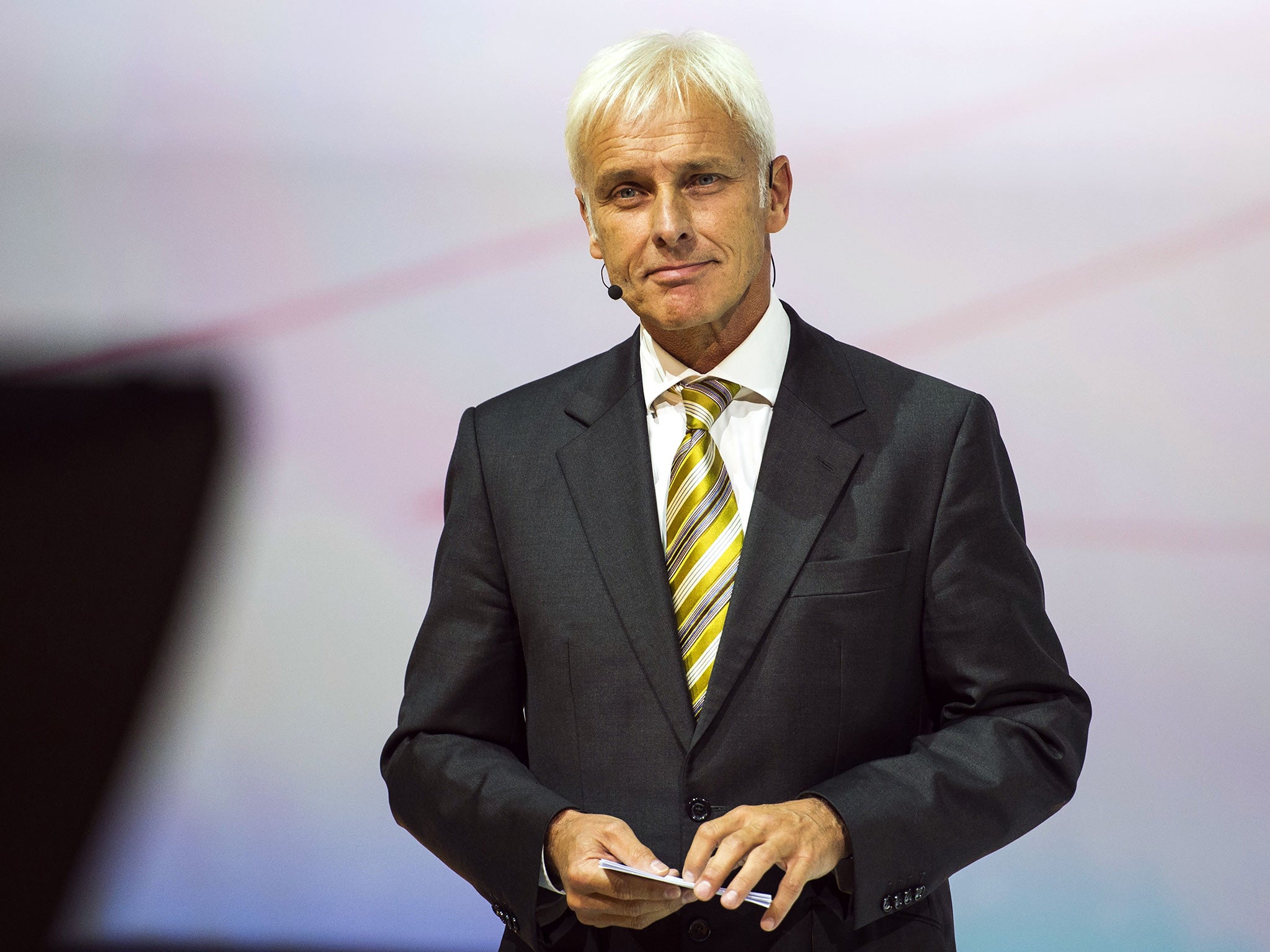New Volkswagen boss Matthias Muller vows to emerge from crisis 'stronger than before'
The 62-year-old said his most urgent task is to win back trust for the Volkswagen Group 'by leaving no stone unturned'

The former Porsche chief executive Matthias Müller who was named as the new Volkswagen boss has said that the company has an opportunity to emerge from the crisis “stronger than before”.
The 62-year-old said his most urgent task is to win back trust for the Volkswagen Group “by leaving no stone unturned, as well as drawing the right conclusions from the current situation”.
The announcement came as the management at the German car giant recommended the suspension of several senior staff until an internal investigation into the rigged diesel-emissions scandal is complete. The board of directors said the test manipulations were a “moral and political disaster” for the company and claimed they were as shocked as the public at the scale of the cover-up.
Mr Müller succeeds Martin Winterkorn who resigned on 23 September saying he took responsibility for the “irregularities” found by US inspectors, but insisted he had personally done nothing wrong.
His task to turn the company’s fortunes around became even harder with news that Volkswagen may also have used software to fake diesel-emission tests in more cars than first suspected.
The Transport Minister Alexander Dobrindt told the German parliament: “There’s also discussion now about 1.2-litre cars being affected. At least for now we believe that possible manipulations can come to light here, too. That’s being further investigated in the talks with Volkswagen.”
It had been assumed about 2.8 million VW vehicles in Germany with 1.6-litre and 2-litre diesel engines had been fitted with “defeat devices” to cheat examiners in the US.
Mr Dobrindt set up an investigating commission this week. He said VW “has pledged to co-operate in the investigation”.
Olaf Lies, economy and transport minister of VW’s home state Lower Saxony, which holds a 20 per cent stake in the company, said the investigation into the scandal was only just starting.
Norway became the latest European country to launch its own national investigation following those already under way in Italy and France. Norway’s economic crimes unit said it will investigate whether “there has been a criminal offence in Norway and whether the fraud has any significance for the cars that have been imported”.
Italy’s Transport Minister said spot checks will be done on at least 1,000 diesel vehicles of all brands. Graziano Delrio said checks costing €8,000 per vehicle will be conducted at dealerships before sale, meaning a taxpayer bill of €8m.
The Czech transport ministry said it was awaiting information from Volkswagen about how many of the EA 189 diesel engines at the centre of the scandal were used in Skoda Auto vehicles. The announcement came after Skoda Auto, a Czech car maker owned by VW, acknowledged it used the engines in the past.
The European Union said it wants quick answers as to how Volkswagen was able to use the stealth software in its vehicles. The top official responsible for the European single market, Elzbieta Bienkowska, said: “We need full disclosure and robust pollutant emissions tests in place.” The EU plans to introduce new emissions tests next year involving on-road monitoring.
The German car magazine Auto Bild retracted allegations it made about a BMW car saying it had “misinterpreted” emissions data regarding the X3 xDrive 20d supplied by the International Council on Clean Transportation. The magazine said it had never intended to accuse BMW of manipulating emission levels.
The US Environmental Protection Agency has accused VW of installing the “defeat device” in 482,000 cars sold in the US. Volkswagen later acknowledged that similar software exists in 11 million diesel vehicles worldwide. The German government has said those included cars in Europe but it is not yet clear how many.
Subscribe to Independent Premium to bookmark this article
Want to bookmark your favourite articles and stories to read or reference later? Start your Independent Premium subscription today.

Join our commenting forum
Join thought-provoking conversations, follow other Independent readers and see their replies